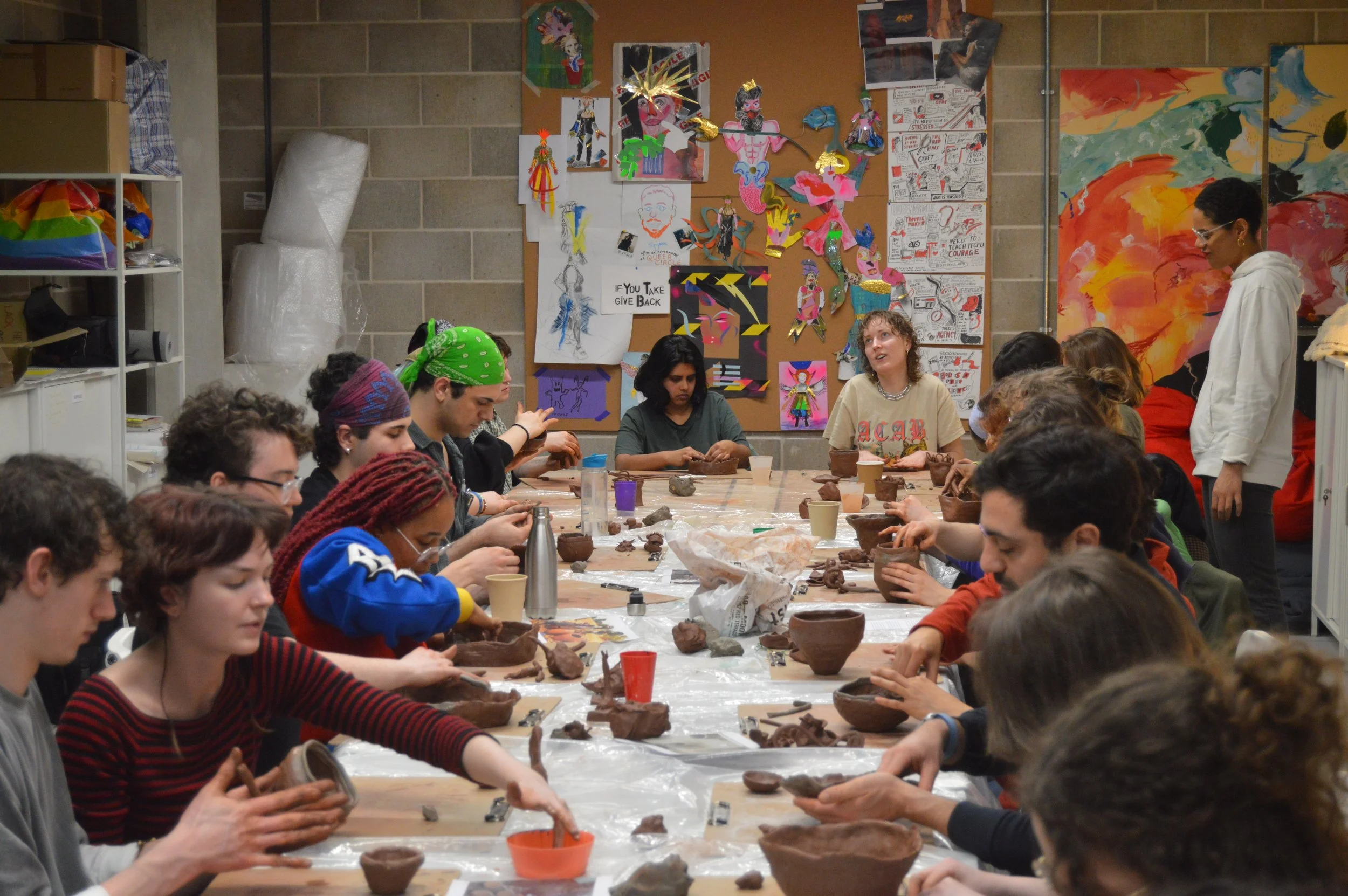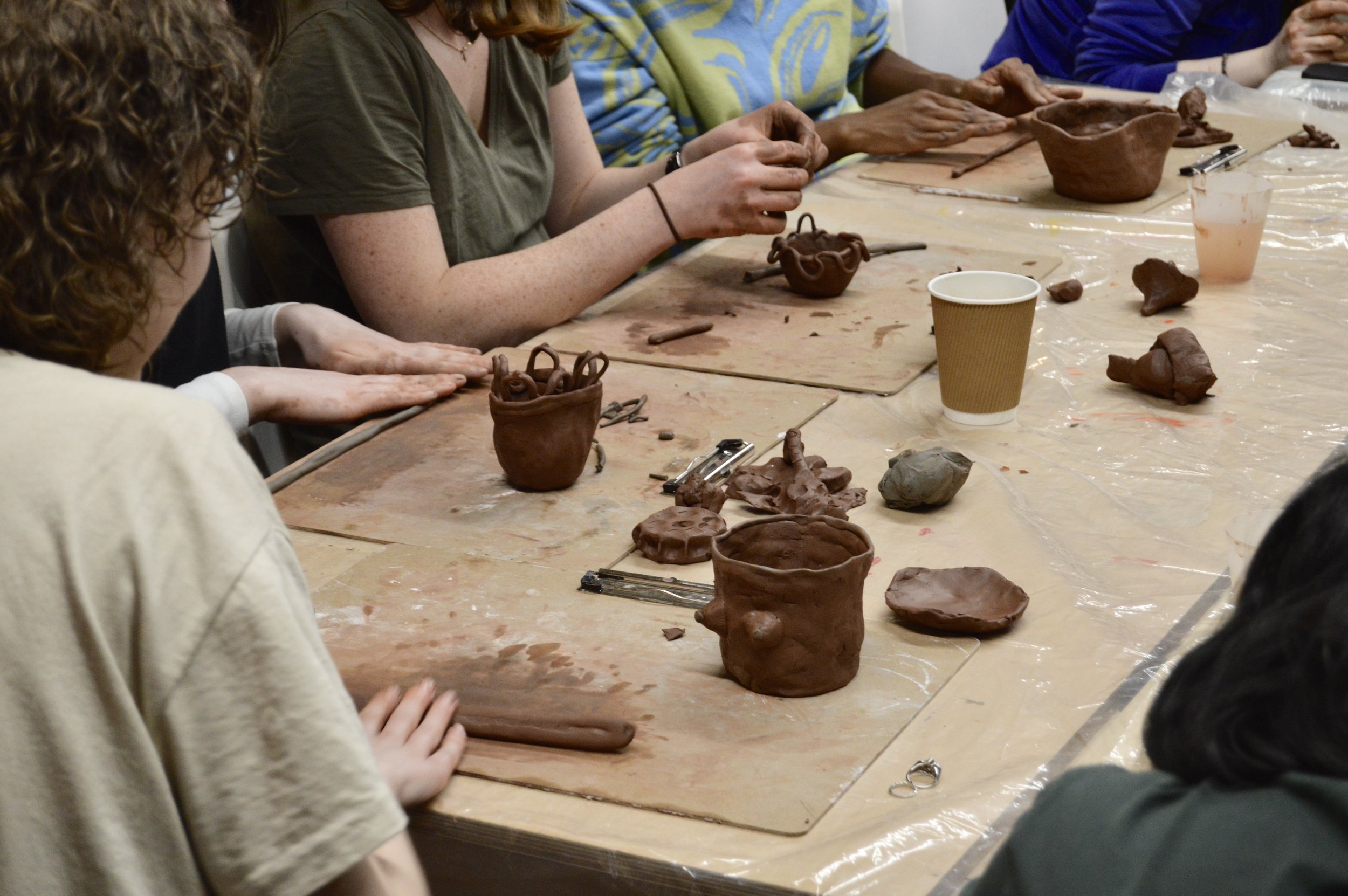COLLECTIVE MAKING CIRCLES AT QUEERCIRCLE (March 2024)
In the context of British studio pottery, the focus is often on the individual. A maker in the studio; alone with the clay. This tradition, along with the individualistic way of being of our Western cultures, has influenced the way we teach pottery today. Even if in a group, we are given our ball of clay, to sit on our wheel, head down; or we mould it to shape our creations.
However, if we look beyond that generation and British borders, the history of pottery is one full of rich stories and traditions of collective making and community. The objects created bringing pride and identity to the group. Picture a group of women making together or an intergenerational group of relatives sharing space and passing on knowledge.
In February 2024 I joined a roundtable on the Decolonisation of Ceramics Practice chaired by Basil Bolton for the British Art Network. As we shared our practices, challenges and visions for a decolonised ceramics practice, my brain started wondering:
Would participants’ relationship to clay and others change if instead of being taught to make their own work, everyone made together?
Could our sense of self as collective beings, part of a lineage and history, be reinforced by making in collaboration with others?
Could post-colonial, Western ways of making and relating to the objects we make be challenged and consequently, push institutions into more equitable structures?
I tested these ideas at my first Collective Making Circle at Queercircle as part of their ‘Glad to be Clay’ series of workshops.
Af first, when I told participants they had to make for five minutes to then pass their objects to the person sitting next to them, I started seeing faces of disapproval, fear and disappointment. Not what they had thought they would be doing.
But once the workshop was over and I gave them the opportunity to share their experiences, the energy was very different.
Some shared how they had felt the responsibility to start an object that could hold or bear other hands; a resilient start. Others commented on how they had felt the energy the object had once it reached their hands, and how they had respected it while adding their own. A sense of responsibility and collectivity.
Perhaps the final objects were not the most amazing pinched and coiled pots these people will ever make and I am confident most of them were not collected by any claimers. I hope, though, participants took home something more important — that we are not alone, and so, our actions have an impact on others. That we are part of an ecosystem. That crafts are about people; about us.





